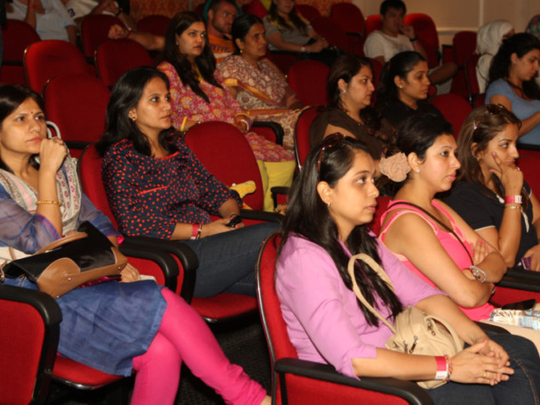
Dubai: Mums, the next time you throw a bag of crisps or sweets for your kids into your grocery basket, think again. The food choices you make for your children while they are young can influence their eating habits in the future, experts say.
Healthy eating for children should start when they begin to eat solids. It is at this time that parents should introduce them to fruit, vegetables and good fats. But this is far from the case in Gulf countries.
“Teaching parents to make healthy food choices for their kids is very important. As well all know, in the Gulf countries, parents are not always with their kids to prepare their meals, it’s often the nannies. So if children end up with bad eating habits, it’s the parents that are to blame,” Dubai-based nutritionist Hala Barghout told Gulf News.
Speaking at a coffee morning session organised by children’s snack Barni at KidZania, on May 11 Barghout addressed parents’ queries on how to make healthier food options for children. She stressed the regularity of mealtimes, having variety and the correct portions.
Children’s nutrition needs might vary depending on their age but carbohydrates should make up 50-60 per cent of their diet, good fats 30 per cent, and protein 10-20 per cent.
Having three balanced meals a day is not enough though. Barghout emphasised healthy snacking on “food breaks” or light meals in between the three major meals of the day.
Healthy food breaks ideally include high-fibre, cereal-based products, dairy, fruit, and water. Food breaks help control sugar cravings and provide added energy for kids in the long gap between meals.
If your kids hardly touch the vegetables on their plate, Andalene Salvesen, a parenting expert based in South Africa who also spoke at the session, has a solution.
“Tell your child to take one bite of the vegetable first before he can have the rest of his food later. They’ll never know if they like it unless they’ve tried it,” Salvesen said, adding that parents must be firm with their decisions. “Your yes must be yes, and no must be no.”











